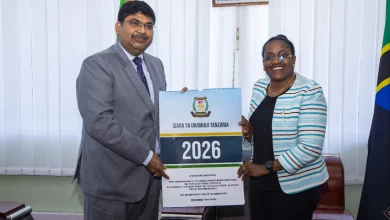UNESCO adopts Kiswahili as official language

SAMARKAND: THE United Nations Educational, Scientific and Cultural Organisation (UNESCO) has officially added Kiswahili to the list of its General Conference languages, marking a historic milestone for Africa’s linguistic and cultural heritage.
The decision, adopted during the 43rd session of the UNESCO General Conference in Samarkand, Uzbekistan, positions Kiswahili as the first African language to attain official recognition within the organisation’s highest decision-making body.
According to the adopted resolution, UNESCO decided to add the Kiswahili language to the list of official languages of the General Conference, acknowledging its role as a unifying tool that fosters peace, multiculturalism and global understanding.
“With more than 250 million speakers worldwide, Kiswahili is the most widely spoken language in sub-Saharan Africa and serves as an official language of the African Union (AU), the East African Community (EAC) and the Southern African Development Community (SADC),” reads part of the meeting document published in the UNESCO website.
UNESCO further said that Kiswahili’s inclusion builds on its growing global status as a language of education, diplomacy and identity.
The move also aligns with United Nations resolutions promoting multilingualism and cultural diversity as instruments for strengthening multilateral cooperation.
The resolution recognises Kiswahili’s significant contribution to promoting quality education, preserving cultural heritage and advancing the African Union’s Agenda 2063 – The Africa We Want.
ALSO READ: Tanzania lures SARDC to incorporate Kiswahili in its publications
Kiswahili language is among the ten most widely spoken languages in the world, carrying shared cultural values across the African continent and beyond. Its widespread use in literature, academia and daily communication plays an essential role in celebrating Africa’s collective heritage.
Kiswahili is the first language of African heritage to be recognised in multilateral settings. Importantly, UNESCO confirmed that the decision carries no financial implications for the organisation, as the Government of the United Republic of Tanzania will cover all costs related to translation of UNESCO’s constitutional texts, resolutions and other essential documents.
Kiswahili’s recognition follows earlier milestones, including the proclamation of July 7 as World Kiswahili Language Day by both UNESCO and the United Nations General Assembly, a day that celebrates the language’s role in promoting unity and sustainable development across the globe.
The recognition of Kiswahili as an official language of the General Conference of UNESCO will contribute to enhancing the growing African heritage, nurturing the appreciation of the language, strengthening collaboration with UNESCO, encouraging research in further language growth and serving as a tool to promote diplomatic multilateral relations.
Through this decision, Kiswahili officially joins the ranks of other UNESCO General Conference languages, solidifying its place on the international stage as a powerful symbol of African heritage, identity, and cooperation.





